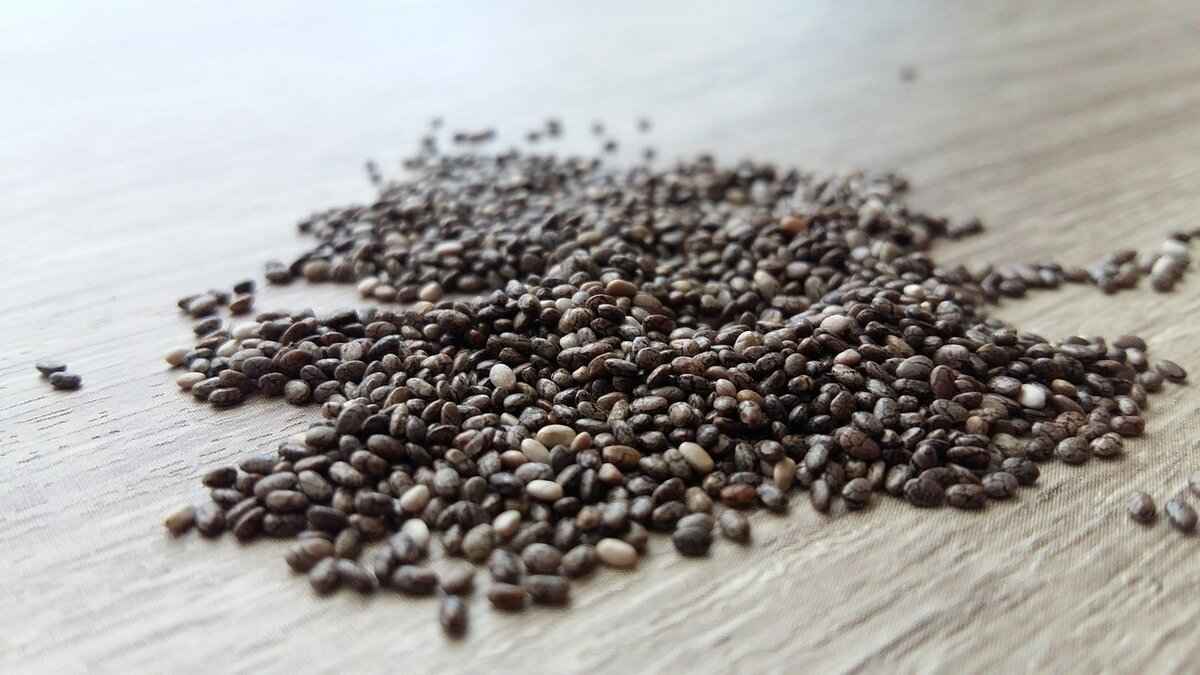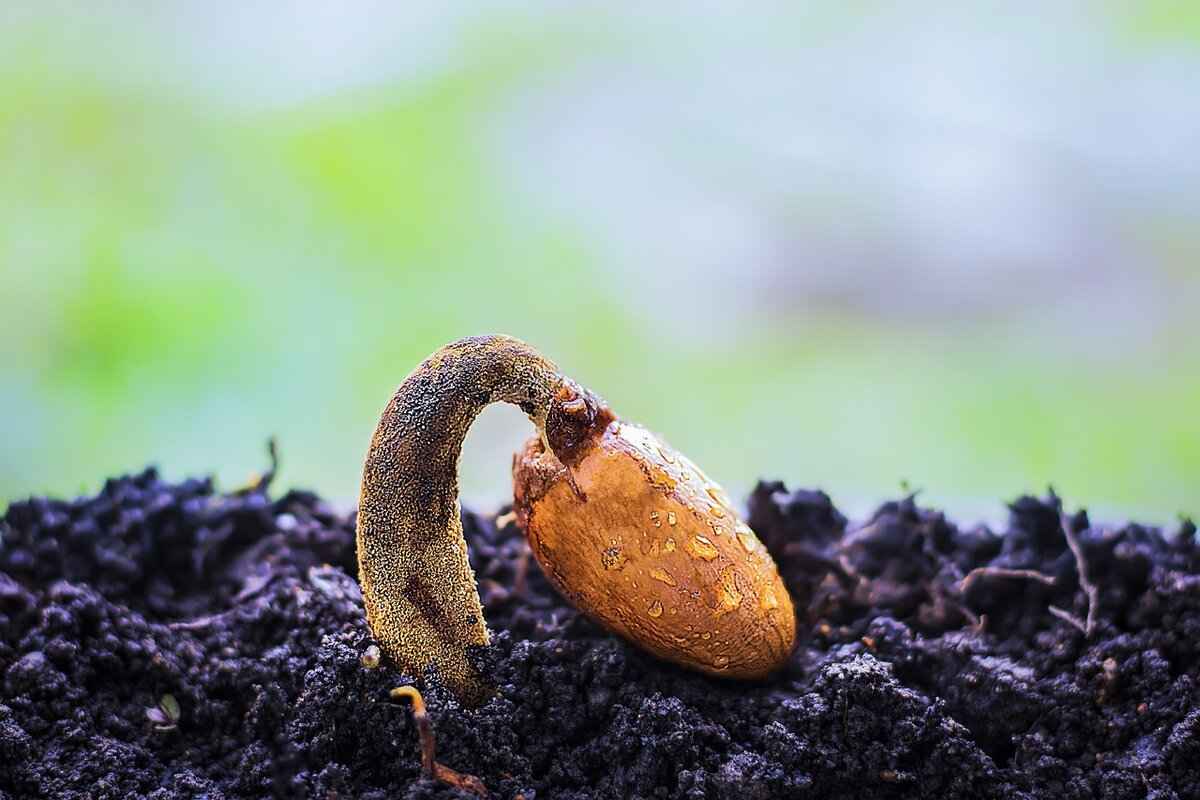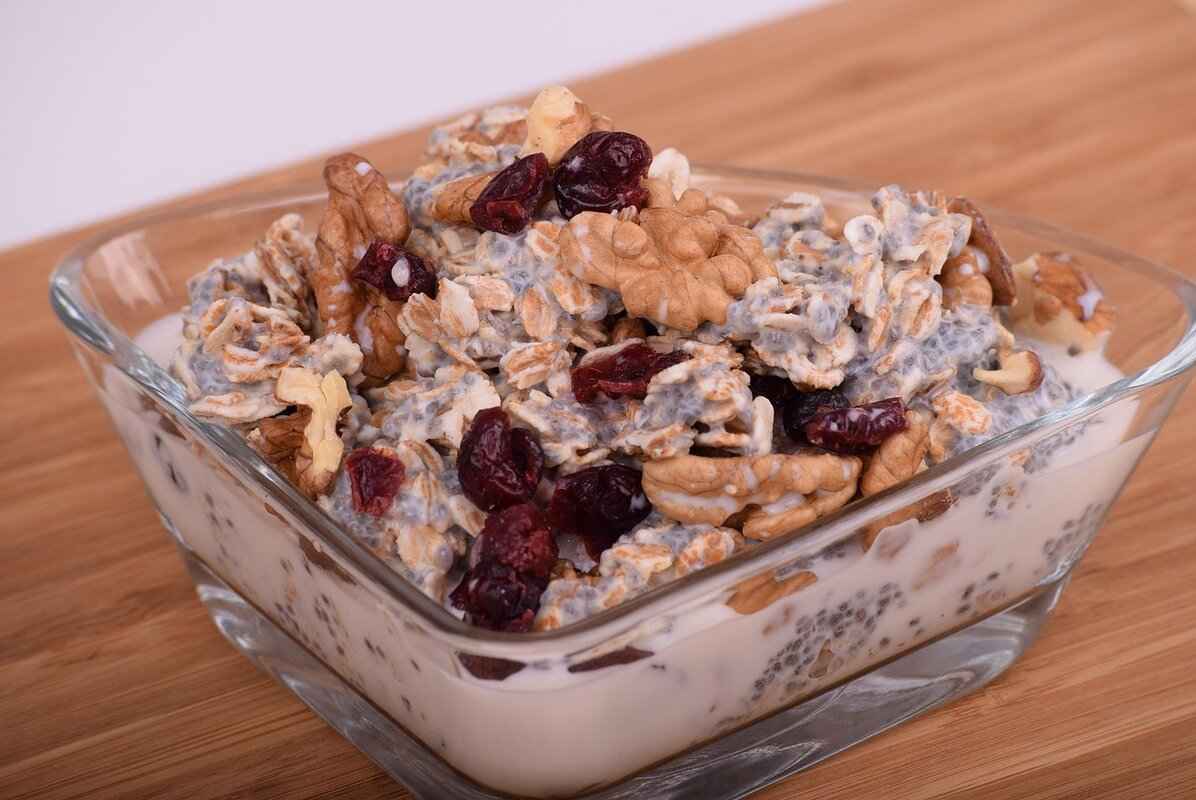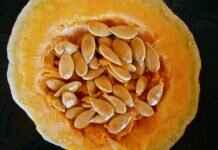This article explores the health benefits and potential risks of chia seeds for dogs, providing insights from veterinary professionals and addressing common concerns among pet owners.
What Are Chia Seeds?
Chia seeds are tiny, nutrient-dense seeds derived from the Salvia hispanica plant. They are celebrated for their high content of omega-3 fatty acids, fiber, and antioxidants, making them a popular addition to human diets. But what about our furry friends?
Are Chia Seeds Safe for Dogs?
While chia seeds boast numerous health benefits, understanding their safety for dogs is crucial. Veterinarians recommend moderation and proper preparation to avoid potential digestive issues. So, can dogs safely enjoy chia seeds?
- Consult Your Vet: Always check with your veterinarian before introducing any new food.
- Moderation is Key: Start with small amounts to gauge your dog’s tolerance.
Potential Benefits of Chia Seeds for Dogs
Chia seeds can provide various health benefits for dogs, including:
- Improved Digestion: The high fiber content in chia seeds aids digestion, helping to regulate bowel movements and prevent constipation.
- Enhanced Coat Health: Rich in omega-3 fatty acids, chia seeds can contribute to a shiny and healthy coat, reducing dryness and promoting overall skin health.
- Better Hydration: Chia seeds absorb water, which can help keep your dog hydrated, especially during hot weather.
How to Introduce Chia Seeds to Your Dog’s Diet
Introducing chia seeds to your dog’s diet should be done gradually to avoid gastrointestinal upset. How should you start?
- Begin with a small amount, such as 1/4 teaspoon for small dogs.
- Mix chia seeds with wet food or water to help with digestion.
- Monitor your pet’s reaction and adjust the amount accordingly.
What Are the Risks of Feeding Chia Seeds to Dogs?
Despite their benefits, chia seeds may pose risks if not fed correctly. Understanding these risks can help pet owners make informed decisions regarding their dog’s diet.
- Digestive Issues: Chia seeds can expand significantly when soaked in liquid, leading to digestive discomfort or blockages if consumed in large quantities without proper hydration.
- Allergic Reactions: Some dogs may have allergies to chia seeds, leading to symptoms like itching, swelling, or gastrointestinal upset.
How Much Chia Seeds Can Dogs Have?
Determining the right portion size of chia seeds for dogs is vital. What are the guidelines?
- Small Dogs: Start with 1/4 teaspoon.
- Medium Dogs: 1/2 teaspoon is generally appropriate.
- Large Dogs: Up to 1 teaspoon may be suitable.
Monitoring Your Dog’s Health
After introducing chia seeds, it’s important to monitor your dog’s health and behavior. What should you look for?
- Check for any adverse reactions like vomiting or diarrhea.
- Observe changes in energy levels or coat condition.
Expert Opinions on Chia Seeds for Dogs
Veterinary professionals often have differing opinions on the inclusion of chia seeds in canine diets. Understanding these perspectives can help pet owners make informed choices.
- Veterinarian Recommendations: Many veterinarians support the inclusion of chia seeds in moderation, emphasizing the importance of a balanced diet.
- Research Findings: Recent studies on chia seeds and canine health provide valuable insights, showcasing both positive outcomes and potential risks when integrated into dog diets.
In conclusion, chia seeds can be a beneficial addition to your dog’s diet when introduced properly and in moderation. Always consult with your veterinarian to tailor dietary choices to your dog’s individual needs.

What Are Chia Seeds?
Chia seeds, originating from the Salvia hispanica plant, are incredibly small yet nutrient-dense seeds that have gained popularity in recent years, particularly in health-conscious communities. These tiny seeds are packed with essential nutrients, making them a valuable addition to various diets. Chia seeds are known for their impressive content of omega-3 fatty acids, dietary fiber, and a range of antioxidants. Their unique properties make them a versatile ingredient in both human and canine nutrition.
Chia seeds are often celebrated for their exceptional nutritional profile. Here are some key nutrients they contain:
- Omega-3 Fatty Acids: These essential fats are crucial for maintaining heart health and supporting brain function.
- Dietary Fiber: Chia seeds are rich in fiber, which aids in digestion and helps regulate blood sugar levels.
- Protein: They provide a plant-based source of protein, making them suitable for vegetarian and vegan diets.
- Antioxidants: These compounds help combat oxidative stress and may support overall health.
- Calcium and Magnesium: Chia seeds are a good source of these minerals, which are important for bone health.
The health benefits of chia seeds extend beyond their nutrient content. Here are some notable advantages:
- Weight Management: The high fiber content can promote a feeling of fullness, potentially aiding in weight loss efforts.
- Digestive Health: Chia seeds can help maintain healthy bowel movements due to their soluble fiber.
- Heart Health: Omega-3 fatty acids in chia seeds may help lower cholesterol levels and reduce inflammation.
As pet owners become more aware of the nutritional needs of their dogs, the question arises: are chia seeds safe and beneficial for our canine companions? The short answer is yes, but with some important considerations.
- Moderation is Key: While chia seeds can offer health benefits to dogs, they should be introduced gradually to prevent digestive upset.
- Hydration is Essential: Due to their ability to absorb water, it’s crucial to ensure that dogs have access to plenty of fresh water when consuming chia seeds.
Introducing chia seeds to your dog’s diet can be done in a few simple steps:
1. Start with a small amount (1/4 teaspoon for small dogs).2. Mix chia seeds with wet food to help with hydration.3. Gradually increase the amount while monitoring your dog's reaction.
While chia seeds are generally safe, there are some risks to consider:
- Digestive Issues: Overconsumption can lead to gastrointestinal discomfort.
- Allergic Reactions: Some dogs may be allergic to chia seeds, so it’s important to observe for any adverse reactions.
Veterinarians often have varying opinions on the inclusion of chia seeds in dog diets. Many support their use in moderation, emphasizing the importance of a balanced diet tailored to each dog’s specific needs. Consulting with a veterinarian can provide personalized guidance on incorporating chia seeds safely.
In summary, chia seeds are a nutrient-rich food that can offer multiple health benefits for both humans and dogs when used appropriately. Understanding their properties and how to introduce them into your dog’s diet can enhance your pet’s overall well-being.

Are Chia Seeds Safe for Dogs?
When it comes to your furry friend’s diet, the inclusion of chia seeds has become a popular topic among pet owners. These tiny seeds, packed with nutrients, can offer several health benefits for dogs. However, understanding their safety is paramount. This article will delve into the question:
Chia seeds are derived from the Salvia hispanica plant and are renowned for their rich nutritional profile, including high levels of omega-3 fatty acids, fiber, and antioxidants. These properties make them a superfood in human diets, but pet owners need to evaluate their suitability for dogs as well.
While chia seeds offer numerous health benefits, understanding their safety for dogs is crucial. Veterinarians recommend moderation and proper preparation to avoid potential digestive issues. The seeds can expand significantly when exposed to liquid, which is a vital consideration for pet owners.
- Improved Digestion: The high fiber content can assist in regulating bowel movements, helping to prevent constipation.
- Enhanced Coat Health: Rich in omega-3s, chia seeds can contribute to a shiny coat and overall skin health.
- Better Hydration: Chia seeds can absorb water, aiding in hydration, particularly in hot weather.
Introducing chia seeds should be done gradually. Start with a small amount, such as 1/4 teaspoon for small dogs, and monitor their reaction. It’s crucial to ensure that your dog is properly hydrated when consuming these seeds, as they can absorb a significant amount of water.
Despite their benefits, chia seeds may pose certain risks if not fed correctly:
- Digestive Issues: If consumed in large quantities without adequate hydration, chia seeds can lead to digestive discomfort or blockages.
- Allergic Reactions: Some dogs may experience allergies to chia seeds, resulting in symptoms such as itching or gastrointestinal upset.
Determining the right portion size is essential. Veterinarians often recommend starting with small amounts and adjusting based on the dog’s size and dietary needs. For larger breeds, you may gradually increase the amount, but always keep an eye on your dog’s health.
After introducing chia seeds, it’s important to monitor your dog for any adverse reactions. Look out for changes in behavior or digestion. If your dog shows signs of discomfort, it may be necessary to reduce or eliminate chia seeds from their diet.
Veterinary professionals often have differing opinions on the inclusion of chia seeds in canine diets. Many support their use in moderation, emphasizing the importance of a balanced diet tailored to each dog’s individual needs.
Recent studies have shown both positive outcomes and potential risks associated with chia seeds in dog diets. These insights help pet owners make informed decisions, ensuring their pets receive the best care possible.
Potential Benefits of Chia Seeds for Dogs
Chia seeds have gained popularity not only in human diets but also as a beneficial addition to canine nutrition. These tiny seeds, packed with essential nutrients, can offer a range of health benefits for dogs. Understanding the potential advantages of incorporating chia seeds into your dog’s diet is crucial for promoting their overall well-being.
- Improved Digestion: The high fiber content in chia seeds plays a significant role in enhancing your dog’s digestive health. Fiber aids in regulating bowel movements, which can help prevent constipation and promote a healthy gut. By gradually introducing chia seeds into your dog’s diet, you can support their digestive system and ensure they are processing their food efficiently.
- Enhanced Coat Health: Chia seeds are rich in omega-3 fatty acids, which are known for their ability to improve skin and coat health. These essential fatty acids contribute to a shiny, lustrous coat while reducing dryness and irritation. Regular consumption of chia seeds can help combat common skin issues in dogs, ensuring they look and feel their best.
- Better Hydration: When chia seeds are soaked in water, they absorb a significant amount of liquid, creating a gel-like substance. This property can aid in hydration, especially for dogs that may not drink enough water. Including chia seeds in your dog’s meals can help maintain optimal hydration levels, particularly in warm weather or after exercise.
- Weight Management: Chia seeds can also be beneficial for dogs that need to manage their weight. The high fiber content promotes a feeling of fullness, which can help reduce overeating. When incorporated into a balanced diet, chia seeds can assist in maintaining a healthy weight for your furry friend.
- Rich in Antioxidants: Chia seeds are loaded with antioxidants, which can help combat oxidative stress and inflammation in dogs. These antioxidants play a vital role in supporting your dog’s immune system, helping them to ward off illnesses and maintain overall health.
As with any dietary change, it is essential to consult with your veterinarian before introducing chia seeds to your dog’s diet. They can provide personalized recommendations based on your dog’s specific health needs and dietary requirements. By understanding the potential benefits of chia seeds, you can make informed decisions that contribute to your dog’s long-term health and happiness.
In summary, chia seeds offer various health benefits for dogs, including improved digestion, enhanced coat health, better hydration, weight management, and a rich source of antioxidants. When used appropriately, these tiny seeds can be a valuable addition to your dog’s diet, promoting a healthier and happier life.
Improved Digestion
The inclusion of chia seeds in a dog’s diet can significantly enhance their digestive health. These tiny seeds are packed with fiber, which plays a crucial role in maintaining proper digestion. When introduced gradually, chia seeds can help in regulating bowel movements, making them an excellent addition for dogs prone to constipation.
How does fiber aid digestion? Fiber adds bulk to the stool, which helps it pass more easily through the digestive tract. This is particularly beneficial for dogs that may experience irregular bowel movements or discomfort due to a lack of dietary fiber. By incorporating chia seeds, pet owners can provide their furry friends with a natural source of fiber that promotes a healthy gut.
Moreover, chia seeds contain soluble fiber, which absorbs water and forms a gel-like substance in the stomach. This gel can help slow digestion, allowing for better nutrient absorption, which is essential for a dog’s overall health. The soluble fiber in chia seeds also supports the growth of beneficial gut bacteria, contributing to a balanced microbiome. A healthy gut microbiome is vital for optimal digestion and can even influence a dog’s immune system.
When introducing chia seeds into your dog’s diet, it’s important to start with small amounts. A gradual introduction allows the dog’s digestive system to adjust without causing any gastrointestinal upset. For example, beginning with a small sprinkle of chia seeds mixed into their regular food can help gauge their tolerance. Over time, the amount can be increased based on the dog’s size and digestive response.
It’s also crucial to ensure that chia seeds are adequately hydrated before feeding them to your dog. When chia seeds are soaked in water, they expand and form a gel, which can help prevent any potential digestive blockages. Feeding dry chia seeds without proper hydration can lead to discomfort or even serious digestive issues, as they may absorb water from the digestive tract, leading to swelling.
Additionally, the high fiber content in chia seeds can assist in weight management for dogs. Fiber-rich foods can promote a feeling of fullness, potentially reducing overeating and helping to maintain a healthy weight. This is particularly beneficial for dogs that may be less active or prone to weight gain.
It’s essential to monitor your dog’s reaction after introducing chia seeds. Look for any signs of digestive distress, such as bloating, gas, or changes in stool consistency. If any adverse effects occur, it may be necessary to adjust the amount or discontinue use altogether. Consulting with a veterinarian is always advisable when making significant changes to your dog’s diet.
In summary, chia seeds can be a valuable addition to a dog’s diet, particularly for improving digestion. Their high fiber content aids in regulating bowel movements, preventing constipation, and promoting overall gut health. However, as with any dietary change, moderation and proper preparation are key to ensuring that your dog reaps the benefits without experiencing any negative side effects.
Enhanced Coat Health
Chia seeds have gained popularity not only as a superfood for humans but also as a beneficial addition to canine diets. One of the most notable benefits of chia seeds is their potential to enhance coat health in dogs. These tiny seeds are packed with essential nutrients that can significantly improve the appearance and condition of your furry friend’s coat.
The primary reason chia seeds are beneficial for dogs’ coats lies in their impressive content of omega-3 fatty acids. These healthy fats are essential for maintaining a shiny, vibrant coat and promoting overall skin health. Omega-3 fatty acids help to:
- Reduce Dryness: Dogs with dry skin often experience flakiness and itchiness. Omega-3s can help combat these issues by providing moisture to the skin.
- Minimize Shedding: A well-nourished coat is less prone to excessive shedding. By incorporating chia seeds into your dog’s diet, you may notice a reduction in the amount of fur left around your home.
- Promote Hair Growth: If your dog has experienced hair loss due to stress, allergies, or other conditions, omega-3 fatty acids can support healthy hair regrowth.
Chia seeds are not only rich in omega-3 fatty acids but also contain a wealth of other nutrients that contribute to overall health:
- High Fiber Content: Fiber helps regulate digestion and can improve nutrient absorption, which is crucial for a healthy coat.
- Antioxidants: These compounds help combat oxidative stress, which can negatively impact skin health.
- Vitamins and Minerals: Chia seeds are a good source of essential vitamins and minerals that support skin and coat health.
Introducing chia seeds to your dog’s diet should be done gradually. Here are some practical tips:
- Start Small: Begin with a small amount, about 1/4 teaspoon for small dogs and 1/2 teaspoon for larger breeds.
- Soak Before Serving: Soaking chia seeds in water before serving can help prevent digestive issues, as they expand and become gelatinous, making them easier to digest.
- Mix with Food: Combine chia seeds with your dog’s regular food to enhance palatability and ensure they receive the full benefits.
While chia seeds offer numerous benefits, it’s important to be aware of potential risks:
- Digestive Upset: Too much fiber can lead to digestive discomfort. Monitor your dog for any signs of bloating or gas.
- Allergic Reactions: Some dogs may be allergic to chia seeds. Watch for symptoms like itching or gastrointestinal upset after introducing them.
Before adding chia seeds to your dog’s diet, it’s wise to consult your veterinarian. They can provide personalized recommendations based on your dog’s individual health needs and dietary requirements.
In conclusion, chia seeds can be a fantastic addition to your dog’s diet, especially for enhancing coat health. With their rich content of omega-3 fatty acids, fiber, and antioxidants, these seeds can help keep your dog’s skin moisturized and coat shiny. Always introduce new foods gradually and consult with a vet to ensure your pet’s safety and well-being.
How to Introduce Chia Seeds to Your Dog’s Diet
Introducing chia seeds to your dog’s diet can be a rewarding experience, but it requires careful consideration to ensure your furry friend remains healthy and happy. These tiny seeds are packed with nutrients, but a gradual introduction is key to preventing any potential gastrointestinal upset.
When adding any new food to your dog’s diet, a gradual approach is essential. This is particularly true for chia seeds, which can absorb a significant amount of water and expand in the stomach. A sudden introduction may lead to digestive discomfort or even blockages.
To begin, consider starting with a small amount of chia seeds. For most dogs, a quarter teaspoon is a good starting point. This allows you to monitor how your pet reacts to the new addition. If your dog handles this well, you can gradually increase the amount over time.
As you introduce chia seeds, keep a close eye on your dog’s behavior and health. Look for signs of gastrointestinal upset, such as vomiting, diarrhea, or changes in appetite. If you notice any adverse reactions, it’s best to reduce the amount or consult your veterinarian.
Chia seeds are known for their ability to absorb water, swelling up to 10-12 times their original size. Therefore, it’s critical to ensure that your dog is drinking plenty of water when consuming chia seeds. This not only aids in digestion but also helps avoid any potential blockages. You can mix chia seeds with water or add them to wet dog food to facilitate hydration.
- Mix with Food: Stir chia seeds into your dog’s regular food to make it more appealing.
- Chia Gel: Soak chia seeds in water for a few hours to create a gel-like consistency, which can be added to meals.
- Baked Treats: Incorporate chia seeds into homemade dog treats for a nutritious boost.
Before making any significant changes to your dog’s diet, it’s always a good idea to consult your veterinarian. They can provide personalized advice based on your dog’s specific health needs and dietary requirements.
In summary, introducing chia seeds to your dog’s diet can be beneficial, but it should be done with care. Start with small amounts, monitor your pet’s reaction, and ensure adequate hydration. By taking these steps, you can safely incorporate this superfood into your dog’s meals, potentially enhancing their overall health and well-being.

What Are the Risks of Feeding Chia Seeds to Dogs?
Chia seeds have gained popularity as a health supplement for both humans and pets. However, as with any dietary addition, it is crucial for pet owners to understand the potential risks involved in feeding chia seeds to their dogs. This article delves into the risks associated with chia seeds and offers practical advice on how to safely incorporate them into your dog’s diet.
While chia seeds are packed with nutrients, they can pose certain health risks if not introduced properly. Being aware of these risks can help pet owners make informed decisions that benefit their furry friends.
One of the most significant risks of feeding chia seeds to dogs is the potential for digestive discomfort. Chia seeds absorb liquid and can expand up to 12 times their original size when soaked. If a dog consumes these seeds without adequate hydration, it can lead to:
- Gastrointestinal blockages – This condition can be serious and may require veterinary intervention.
- Diarrhea – An abrupt introduction of chia seeds can cause loose stools, especially if given in large quantities.
- Gas and bloating – Excessive fiber can lead to uncomfortable gas and bloating in dogs.
Another risk to consider is the possibility of allergic reactions. Although rare, some dogs may have allergies to chia seeds. Symptoms can include:
- Itching and swelling – Dogs may scratch or bite at their skin if they experience an allergic reaction.
- Gastrointestinal upset – Symptoms like vomiting or diarrhea may occur.
It is essential to monitor your dog closely after introducing chia seeds into their diet to identify any adverse reactions promptly.
Chia seeds are high in fiber, which, while beneficial in moderation, can interfere with the absorption of certain nutrients if consumed in excessive amounts. This can lead to:
- Malnutrition – Overloading on fiber may prevent your dog from absorbing essential vitamins and minerals.
- Imbalanced diet – Relying too heavily on chia seeds can lead to an unbalanced diet, lacking in other vital nutrients.
To minimize the risks associated with chia seeds, pet owners should follow a few guidelines:
- Start small – Introduce chia seeds gradually into your dog’s diet, beginning with a small amount (1/4 teaspoon for small dogs and 1 teaspoon for larger breeds).
- Soak the seeds – Always soak chia seeds in water before feeding them to your dog. This will help them expand safely and reduce the risk of blockages.
- Monitor your dog – Keep an eye on your dog’s behavior and health after introducing chia seeds. Look for any signs of discomfort or allergic reactions.
In conclusion, while chia seeds can offer health benefits for dogs, it is vital to approach their introduction with caution. Understanding the potential risks and following safe feeding practices can ensure that your dog enjoys the advantages of chia seeds without experiencing adverse effects.
Digestive Issues
are a significant concern when it comes to feeding chia seeds to dogs. While these tiny seeds are packed with nutrients, their unique properties can pose challenges for canine digestion if not handled properly. Understanding the implications of chia seed consumption is essential for any responsible pet owner.
Chia seeds can absorb up to 12 times their weight in liquid, which means that when they are consumed dry, they can expand significantly in the dog’s stomach. This expansion can lead to digestive discomfort, including bloating and gas, especially if the seeds are consumed in large quantities without adequate hydration. It is crucial to ensure that your dog has access to plenty of water when introducing chia seeds into their diet.
Moreover, if chia seeds are not properly hydrated before consumption, they may cause blockages in the digestive tract. This is particularly concerning for smaller dogs or those with pre-existing gastrointestinal issues. To mitigate these risks, it is advisable to soak chia seeds in water or mix them into wet food before offering them to your dog. This method allows the seeds to expand outside of the digestive system, reducing the chance of any complications.
To help pet owners understand the importance of proper chia seed preparation, here is a simple guide:
- Start with a small amount, such as 1/4 teaspoon for small dogs.
- Soak the chia seeds in water for at least 30 minutes before serving.
- Monitor your dog’s reaction to the seeds and adjust the quantity as needed.
It is also essential to consider your dog’s overall diet and health. If your dog has a history of , consult with a veterinarian before introducing chia seeds. Each dog is unique, and what works for one may not be suitable for another. Regular check-ups can help identify any potential problems early on.
In addition to the risk of digestive discomfort, some dogs may experience allergic reactions to chia seeds. Symptoms can include itching, swelling, or gastrointestinal upset. Therefore, it is vital to monitor your pet closely after introducing any new food, including chia seeds.
In summary, while chia seeds can provide health benefits for dogs, they must be introduced carefully to avoid digestive issues. Proper hydration and gradual introduction are key to ensuring that your furry friend can enjoy the advantages of these nutrient-dense seeds without any adverse effects. Always keep an eye on your dog’s health and consult with a veterinarian if you have any concerns.
Allergic Reactions
When considering the inclusion of chia seeds in your dog’s diet, it’s crucial to be aware of potential allergic reactions. While many dogs can safely enjoy the health benefits of these tiny seeds, some may experience adverse effects. Understanding these reactions can help pet owners make informed decisions about their furry friends’ nutrition.
Allergic reactions in dogs can manifest in various ways. Common symptoms to watch for include:
- Itching and Scratching: Dogs may exhibit excessive scratching or biting at their skin, indicating discomfort.
- Swelling: Look for localized swelling, particularly around the face, ears, or paws.
- Gastrointestinal Upset: Symptoms such as vomiting, diarrhea, or gas may occur if your dog is allergic to chia seeds.
- Respiratory Issues: In rare cases, dogs may experience difficulty breathing or coughing.
If you suspect your dog may have an allergy to chia seeds, it is essential to monitor them closely after introducing this new food. Start with a small amount and observe any changes in behavior or health. Keeping a food diary can help track any adverse reactions.
If you notice any symptoms of an allergic reaction, it is crucial to stop feeding chia seeds immediately. Here are some steps to take:
- Consult Your Veterinarian: Reach out to your vet for advice and possible treatment options.
- Monitor Symptoms: Keep a close eye on your dog’s condition. If symptoms worsen, seek veterinary care promptly.
- Consider Allergy Testing: Your veterinarian may recommend allergy testing to determine specific triggers.
Many dogs can enjoy chia seeds without any issues, provided they are introduced gradually and in moderation. If your dog has a history of allergies, it is best to consult with a veterinarian before adding chia seeds to their diet. Always ensure that your dog’s overall diet remains balanced and nutritious.
If your dog is allergic to chia seeds, there are alternative sources of omega-3 fatty acids that can provide similar health benefits:
- Fish Oil: Rich in omega-3s, fish oil can enhance coat health and reduce inflammation.
- Flaxseed Oil: Another excellent source of omega-3s, flaxseed oil can be used as a supplement.
- Walnuts: While not all dogs can digest walnuts well, they are a plant-based source of omega-3s.
In conclusion, while chia seeds can be a beneficial addition to many dogs’ diets, it’s essential to be aware of the potential for allergic reactions. Monitoring your dog’s health and consulting with a veterinarian can help ensure a safe and healthy diet.

How Much Chia Seeds Can Dogs Have?
When considering the incorporation of chia seeds into your dog’s diet, understanding the appropriate portion size is crucial for their health and well-being. Veterinarians emphasize that the right amount can vary significantly based on a dog’s size, age, and overall dietary requirements.
Feeding your dog the right portion of chia seeds is essential for several reasons:
- Digestive Health: Chia seeds are high in fiber, which can aid digestion but may cause discomfort if given in excess.
- Weight Management: Overfeeding can lead to unnecessary weight gain, especially in less active dogs.
- Allergy Prevention: Starting with smaller amounts allows you to monitor for any adverse reactions.
Veterinarians typically recommend starting with a small amount of chia seeds and adjusting according to your dog’s size:
| Dog Size | Initial Portion | Maximum Portion |
|---|---|---|
| Small Dogs (up to 20 lbs) | 1/4 teaspoon | 1/2 teaspoon |
| Medium Dogs (21-50 lbs) | 1/2 teaspoon | 1 teaspoon |
| Large Dogs (51 lbs and above) | 1 teaspoon | 2 teaspoons |
As you introduce chia seeds into your dog’s diet, it’s important to monitor their response. If your dog experiences any digestive issues, consider reducing the portion size or consulting your veterinarian. Regularly observe your dog’s behavior, energy levels, and stool quality to ensure they are adapting well.
Chia seeds can absorb up to 12 times their weight in water, which means they can expand significantly in your dog’s stomach. Therefore, it’s crucial to ensure your dog has access to plenty of fresh water, especially after consuming chia seeds. This helps prevent any potential digestive blockages.
Be aware of the signs that may indicate your dog has had too much chia seed:
- Vomiting or nausea
- Diarrhea or loose stools
- Abdominal discomfort or bloating
If you notice any of these symptoms, it’s advisable to reduce the portion size and consult your veterinarian for further guidance.
Before introducing any new food into your dog’s diet, including chia seeds, it’s always best to consult with a veterinary professional. They can provide personalized advice based on your dog’s health history, dietary needs, and lifestyle. This ensures that you are making the best choices for your furry friend’s nutrition.
In summary, understanding the right portion sizes for chia seeds is essential for your dog’s health. By starting small and adjusting based on your dog’s individual needs, you can safely incorporate this nutritious seed into their diet.
Portion Guidelines for Different Dog Sizes
When considering the incorporation of chia seeds into your dog’s diet, it’s essential to understand the appropriate portion sizes based on your dog’s breed and size. Chia seeds are known for their numerous health benefits, but the quantity given can vary significantly between smaller and larger dogs.
As a general guideline, smaller dogs may require less chia seed than their larger counterparts. Starting with a small amount helps to gauge your dog’s tolerance and reaction to these nutrient-dense seeds. Here are some recommended starting portions:
- Small Dogs (up to 20 lbs): Begin with 1/4 teaspoon of chia seeds. This amount is sufficient to introduce the seeds without overwhelming their digestive system.
- Medium Dogs (21-50 lbs): A good starting portion is 1/2 teaspoon. This allows for the benefits of chia seeds while ensuring that the dog can digest them comfortably.
- Large Dogs (51-90 lbs): For larger breeds, starting with 1 teaspoon is advisable. This amount can be gradually increased as you monitor your dog’s health and reaction to the seeds.
- Extra Large Dogs (over 90 lbs): Owners of extra large breeds can begin with 1 to 2 teaspoons, depending on the dog’s overall health and dietary needs.
It’s crucial to remember that these are merely starting points. Always observe your dog for any signs of digestive discomfort or allergic reactions after introducing chia seeds. Adjust the portion size accordingly based on their individual health and tolerance.
Understanding the importance of portion control when feeding chia seeds to dogs cannot be overstated. Chia seeds can absorb up to 12 times their weight in water, which means they can expand in your dog’s stomach. If given in excessive amounts without adequate hydration, this can lead to digestive issues or blockages. Therefore, introducing chia seeds gradually and in moderation is key to ensuring your dog’s health and well-being.
After introducing chia seeds into your dog’s diet, it’s important to closely monitor their health and behavior. Look for any signs of gastrointestinal upset, such as vomiting, diarrhea, or changes in appetite. Should any adverse effects occur, it may be wise to reduce the portion size or consult a veterinarian for further guidance.
Additionally, consider the overall balance of your dog’s diet. Chia seeds should complement a well-rounded diet rather than replace essential nutrients from other food sources. Always prioritize a variety of foods to ensure your dog receives all necessary vitamins and minerals.
Before making any significant changes to your dog’s diet, including the addition of chia seeds, consulting with a veterinarian is advisable. They can provide tailored recommendations based on your dog’s specific health needs, age, and activity level. This personalized approach can help prevent any potential health issues and ensure that your dog thrives.
In summary, chia seeds can be a beneficial addition to your dog’s diet when introduced correctly. By following the portion guidelines based on your dog’s size and monitoring their health, you can safely incorporate these nutritious seeds into their meals.
Monitoring Your Dog’s Health
When introducing chia seeds into your dog’s diet, it is essential to prioritize their health and well-being. This process requires careful monitoring to ensure that your furry friend adapts positively to the new dietary addition. Here, we will explore the importance of observing your dog’s health after introducing chia seeds, the signs to look for, and the steps you can take to ensure a smooth transition.
Dogs, like humans, can have different reactions to new foods. Monitoring your dog’s health after introducing chia seeds allows you to identify any potential issues early on. This vigilance helps in ensuring that your pet enjoys the benefits of chia seeds without experiencing any adverse effects.
- Digestive Changes: Look for any signs of diarrhea, vomiting, or changes in appetite. These may indicate that your dog is having trouble adjusting to the new food.
- Behavioral Changes: Pay attention to any shifts in your dog’s behavior, such as lethargy or increased irritability, which could signal discomfort.
- Skin Reactions: Monitor for any signs of allergies, such as itching or swelling, especially around the face and paws.
To help your dog adjust to chia seeds, follow these guidelines:
- Start Slow: Introduce chia seeds gradually, beginning with a small amount. This allows your dog’s digestive system to adapt without overwhelming it.
- Hydration is Key: Since chia seeds absorb water and expand, ensure your dog has access to plenty of fresh water. This can help prevent any digestive blockages.
- Observe and Adjust: Keep a close eye on how your dog responds over the first few weeks. If you notice any adverse reactions, consult your veterinarian for advice.
If you have any concerns about how your dog is reacting to chia seeds, do not hesitate to reach out to your veterinarian. They can provide tailored advice based on your dog’s specific health needs and dietary requirements. Regular check-ups can also help ensure that your dog remains healthy as they adapt to their new diet.
Even after the initial adjustment period, it is important to continue monitoring your dog’s health. Regularly assess their coat condition, energy levels, and overall behavior. This ongoing observation can help you determine whether chia seeds are positively impacting your dog’s health.
Incorporating chia seeds into your dog’s diet can offer numerous health benefits, but it is crucial to do so with care. By closely monitoring your dog’s health and behavior, you can ensure that they enjoy the advantages of this superfood while minimizing the risk of any adverse effects. Remember, every dog is unique, and what works for one may not work for another, so always prioritize your pet’s individual needs.

Expert Opinions on Chia Seeds for Dogs
When it comes to feeding chia seeds to dogs, the veterinary community is divided. Some veterinarians advocate for their inclusion due to their numerous health benefits, while others express caution regarding potential risks. Understanding these varying perspectives can empower pet owners to make informed dietary choices for their furry companions.
Many veterinary professionals recognize that chia seeds are rich in omega-3 fatty acids, fiber, and antioxidants. These nutrients can contribute positively to a dog’s overall health. For instance, omega-3 fatty acids are known to promote a shiny coat and support joint health, while fiber aids in digestion. However, the key takeaway from veterinarians is the importance of moderation.
While chia seeds can be beneficial, some vets caution against their use in certain situations. One major concern is the potential for digestive issues. Chia seeds can absorb a significant amount of water, expanding in the stomach. If not introduced properly, they may lead to gastrointestinal discomfort or even blockages. Therefore, it’s crucial to ensure that dogs are adequately hydrated when consuming these seeds.
Veterinary experts recommend a gradual introduction of chia seeds into a dog’s diet. Starting with a small amount, such as 1/4 teaspoon for smaller breeds, allows pet owners to monitor their dog’s reaction. If no adverse effects are noted, the amount can be increased slowly. This careful approach helps mitigate the risk of digestive upset.
Another concern raised by veterinarians is the possibility of allergic reactions. Just like humans, dogs can develop allergies to various foods, including chia seeds. Symptoms may include itching, swelling, or gastrointestinal upset. Pet owners are advised to observe their dogs closely after introducing any new food, including chia seeds, to catch any signs of allergies early.
Recent studies have shown that when chia seeds are incorporated into a balanced diet, they can offer several health benefits. For example, they may help improve skin health and enhance hydration in dogs, particularly during hot weather. These findings have led some veterinarians to endorse chia seeds as a beneficial supplement, provided they are used judiciously.
Pet owners should take into account their dog’s specific health needs and dietary requirements before adding chia seeds to their diet. Consulting with a veterinarian can provide personalized recommendations based on the dog’s health status, age, and activity level. This tailored approach ensures that the dog receives the right nutrients without unnecessary risks.
When selecting chia seeds, pet owners should choose high-quality, organic options to ensure they are free from contaminants. Additionally, it’s essential to store chia seeds properly to maintain their nutritional value. Keeping them in a cool, dry place can help preserve their freshness and potency.
In conclusion, while there are differing opinions among veterinarians regarding the inclusion of chia seeds in canine diets, many agree that they can be a valuable addition when used appropriately. By understanding the potential benefits and risks, pet owners can make informed decisions that support their dog’s health and well-being.
Veterinarian Recommendations
When it comes to incorporating chia seeds into a dog’s diet, many veterinarians advocate for their inclusion, provided it is done with care and moderation. These tiny seeds, packed with nutrients, can offer various health benefits for dogs. However, the emphasis is always on the importance of a balanced diet tailored to the individual needs of each dog.
Veterinarians often highlight that while chia seeds are beneficial, they should not replace a dog’s regular food. Instead, they should be seen as a supplement that can enhance a dog’s overall nutrition. For instance, chia seeds are rich in omega-3 fatty acids, which are known to support heart health and contribute to a shiny coat. Additionally, their high fiber content aids in digestion, making them a good option for dogs that may struggle with gastrointestinal issues.
However, it’s crucial to introduce chia seeds gradually into a dog’s diet. Many vets recommend starting with a small amount, such as 1/4 teaspoon for smaller breeds, and monitoring the dog’s response. This cautious approach helps prevent any potential digestive upset that may occur if chia seeds are introduced too quickly or in large quantities.
Moreover, veterinarians stress the importance of ensuring that chia seeds are properly prepared before feeding them to dogs. Chia seeds can absorb a significant amount of liquid, expanding in size. This property can lead to digestive issues if the seeds are consumed dry and without adequate hydration. Therefore, it is advisable to soak the seeds in water before adding them to your dog’s food, allowing them to expand and become easier to digest.
Another important consideration is the individual health conditions of the dog. For instance, dogs with certain health issues, such as pancreatitis or those on specific medications, may require a different dietary approach. In such cases, consulting with a veterinarian is essential to tailor a diet that meets the dog’s specific health needs.
In addition to the benefits, some veterinarians caution against potential risks associated with chia seeds. While rare, some dogs may experience allergies to chia seeds, leading to symptoms like itching, swelling, or gastrointestinal discomfort. Therefore, pet owners should monitor their dogs closely after introducing any new food item, including chia seeds.
Furthermore, it’s important to consider the dog’s overall diet. Chia seeds can be a great addition, but they should complement a well-rounded diet that includes proteins, carbohydrates, vitamins, and minerals. Veterinarians often recommend a variety of foods to ensure that dogs receive all the necessary nutrients for optimal health.
In summary, many veterinarians support the inclusion of chia seeds in a dog’s diet, advocating for moderation and individualized dietary plans. By focusing on a balanced diet and considering the specific health needs of each dog, pet owners can safely incorporate chia seeds as a beneficial supplement. Always consult with a veterinarian before making significant changes to your dog’s diet to ensure their health and well-being.
Case Studies and Research Findings
Recent studies on chia seeds and canine health have shed light on their effects, revealing both positive outcomes and potential risks when integrated into dog diets. As pet owners increasingly seek natural supplements for their furry companions, understanding the implications of chia seeds is essential.
Research indicates that chia seeds are rich in essential nutrients such as omega-3 fatty acids, fiber, and antioxidants, which can contribute to a dog’s overall health. A study published in the Journal of Animal Nutrition highlighted the anti-inflammatory properties of chia seeds, suggesting they may help alleviate conditions like arthritis in dogs.
Several studies have documented the benefits of chia seeds for dogs:
- Improved Digestive Health: The high fiber content in chia seeds promotes healthy digestion, aiding in regular bowel movements and preventing constipation.
- Enhanced Skin and Coat Condition: Omega-3 fatty acids found in chia seeds can lead to a shinier coat and healthier skin, reducing issues like dryness and irritation.
- Weight Management: Chia seeds can help dogs feel full longer due to their ability to absorb water and expand, which may assist in weight control.
While the benefits are notable, some studies have also pointed out potential risks:
- Digestive Upset: If not introduced gradually, chia seeds can cause gastrointestinal discomfort in dogs, particularly if consumed in large quantities.
- Allergic Reactions: Some dogs may be allergic to chia seeds, leading to symptoms such as itching or gastrointestinal distress. Monitoring your pet after introduction is crucial.
Veterinarians suggest a cautious approach when adding chia seeds to your dog’s diet:
- Start Small: Begin with a small amount, such as ¼ teaspoon, and gradually increase based on your dog’s size and tolerance.
- Hydration is Key: Ensure that chia seeds are soaked in water before feeding, as they can absorb liquid and expand significantly.
Veterinary professionals often have differing views on the inclusion of chia seeds in canine diets. Many agree that when fed in moderation, chia seeds can be a beneficial addition, provided they are part of a balanced diet. A survey of veterinarians found that over 70% support the use of chia seeds, emphasizing the importance of individualized dietary plans tailored to a dog’s specific health needs.
In summary, recent research underscores the potential benefits of chia seeds for dogs while also highlighting the importance of moderation and careful introduction. Pet owners should consult with their veterinarians to ensure that chia seeds are a safe and beneficial addition to their dog’s diet.
Frequently Asked Questions
- Can I feed my dog chia seeds every day?
While chia seeds are nutritious, it’s best to feed them in moderation. Daily feeding can be fine, but always start with small amounts and monitor your dog’s reaction.
- How should I prepare chia seeds for my dog?
It’s recommended to soak chia seeds in water before feeding them to your dog. This helps them expand and become easier to digest, preventing any potential digestive issues.
- What if my dog shows signs of an allergic reaction?
If you notice any symptoms like itching or gastrointestinal upset after introducing chia seeds, stop feeding them immediately and consult your veterinarian for guidance.
- Are there any dogs that should avoid chia seeds?
Yes, dogs with certain health conditions or those on specific diets should avoid chia seeds. Always consult with your vet before adding new foods to your dog’s diet.
- How do chia seeds benefit my dog’s coat?
Chia seeds are rich in omega-3 fatty acids, which can enhance your dog’s coat health, making it shinier and reducing dryness or irritation.













